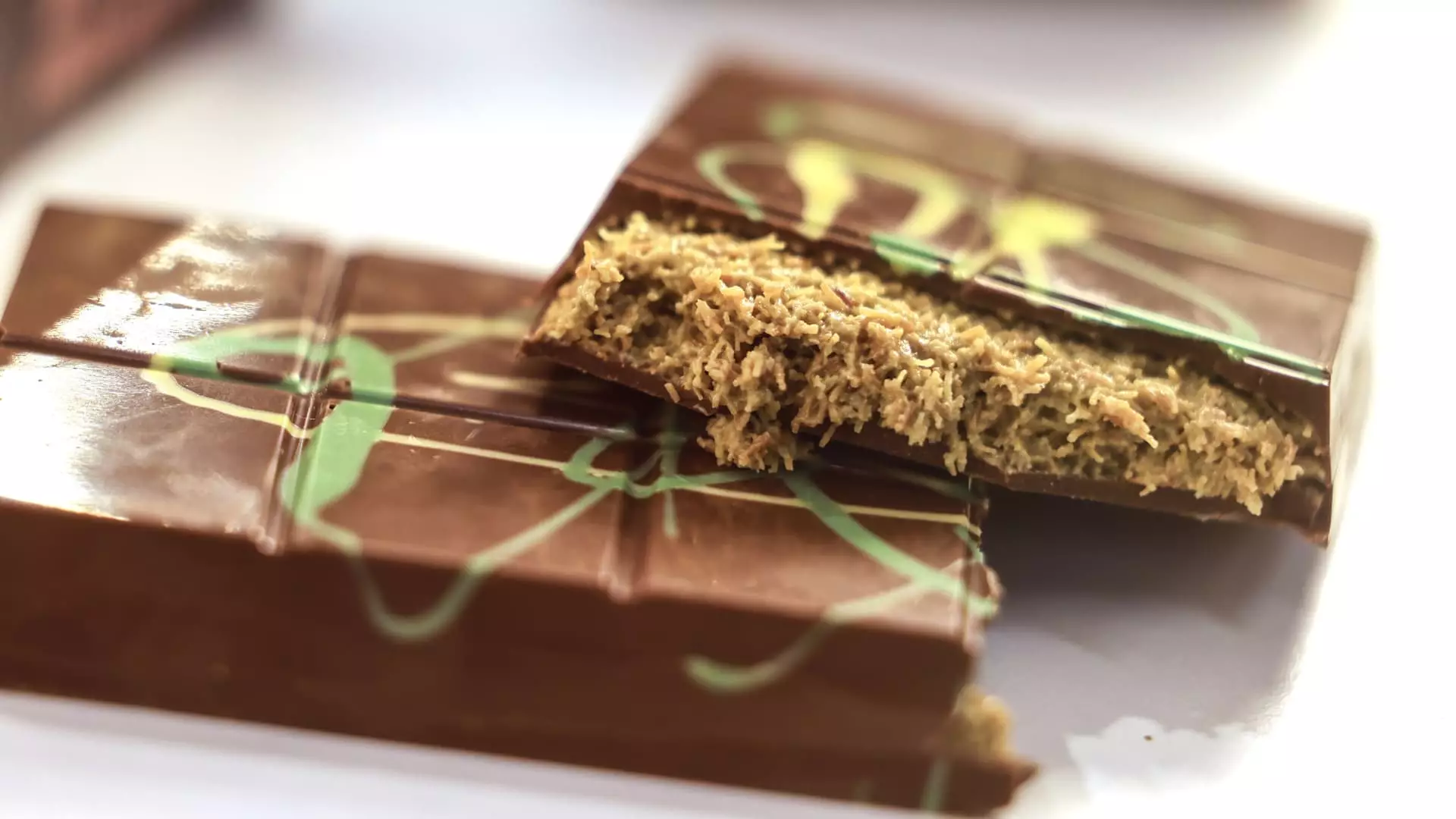In a world where flavors intermingle and culinary boundaries are continuously tested, a delightful new trend is making waves: the “Dubai chocolate.” This unique confectionery originated from the whims of a pregnant chocolate enthusiast, Sarah Hamouda, who, in a creative stroke, sought to encapsulate a sweet masterpiece filled with pistachio cream, kadayif, and tahini within a chocolate shell. Introduced by her company, Fix Dessert Chocolatier, this innovative treat not only satisfied her cravings but also sparked a worldwide obsession once it went viral on social media in late December 2023. It’s incredible to think that a simple pregnancy craving could evolve into a phenomenon that sends shockwaves through the dessert industry.
The allure of this chocolate creation isn’t just in its taste but also in its story—an embodiment of personal journey turned entrepreneurial success. Yet, this success also brings a whirlwind of challenges, especially with the looming threat of imitation. Without robust trademark protections in place, the unique Dubai chocolate concept is vulnerable to numerous dupes, posing an existential threat to its authenticity and branding.
Massive Market Response
The moment the Dubai chocolate took flight on social media, the demand surged rapidly—shifting from a handful of orders weekly to an overwhelming influx of 10 to 15 a day. Local delivery services seem to have found a goldmine, as seen in the staggering 1.2 million sales from Dubai International Airport’s Duty-Free alone, generating $22 million in revenue within just one month. However, this meteoric rise has a dark side—the imminent threat of dilution as other companies capitalize on the burgeoning trend.
Major food players like Shake Shack and Crumbl have taken note of this gold rush, hastily churning out limited-edition treats inspired by the Dubai chocolate craze. Their actions underscore a prevalent trend in today’s market: the ferocious desire of brands to stay relevant and capture consumer attention through novelty. Yet, while these adaptations may satisfy immediate consumer cravings, they often lack the deep emotional connection that initially drove the trend, further commodifying a sweet experience meant to evoke nostalgia and passion.
The Dangers of Imitation
The emergence of numerous imitations threatens not just the originality of the Dubai chocolate but also casts a shadow on smaller businesses like Nuts Factory, which pioneered its own version of the bar in New York City. Din Allall’s account of the chaos his business currently faces is a sobering reminder of how quickly the industry can shift. His determination to meet skyrocketing demand speaks volumes about the strenuous, often unsustainable, pressure that follows a viral phenomenon.
The implications of such imitation extend beyond mere economics; they raise the question of brand authenticity and consumer awareness. Are we, as consumers, diluting the essence of flavors by gravitating towards cheap imitations instead of supporting original artisans like Hamouda? It’s a dilemma reflective of society’s ever-growing tendency to favor convenience and cost-cutting over genuine culinary artistry. Each time we lean towards a knockoff, we risk undermining the very creativity that spurred the trend, reducing it to another transient phase in the food cycle.
The Sweetening of Competition
Despite the challenges, the competition spurred by the Dubai chocolate trend has led to an intriguing rise in chocolate-pistachio flavor compositions across restaurant menus, which grew by a compelling 22.3% between late 2023 and early 2024. This newfound affection for unique flavor pairings can be seen as both a celebration of culinary creativity and a reflection of evolving consumer preferences—a heartening development for advocates of diverse culinary experiences.
The evolving landscape poses a crucial juncture: will we embrace the novelty of flavor or anchor ourselves to the stories behind them? This duality creates a complexity that’s both exhilarating and disheartening. Individual brands are now in a race to refine their offerings, while the original creators stand at risk of being overshadowed, not only by corporate giants but also by the fleeting whims of social trends.
The Dubai chocolate trend exemplifies the fragility of culinary fame in today’s fast-paced market, where excitement, demand, and imitation dance in a delicate balance. As we plunge into a world of delightful indulgences, the responsibility lies within us to discern authenticity from imitation—an act that honors creativity and sustains the vibrant tapestry of our gastronomic culture.

Leave a Reply